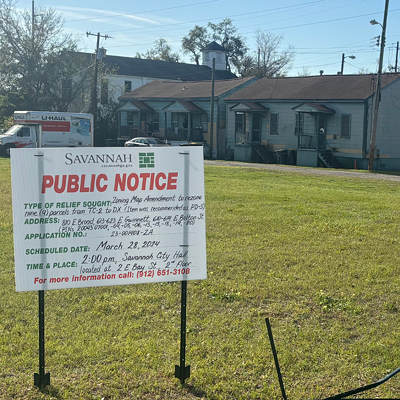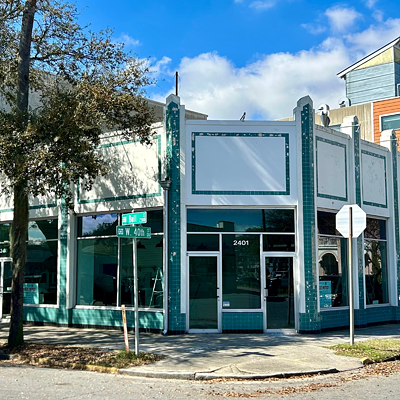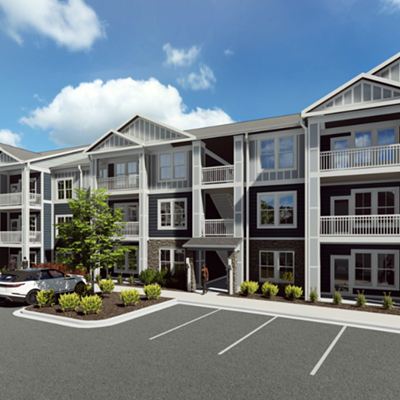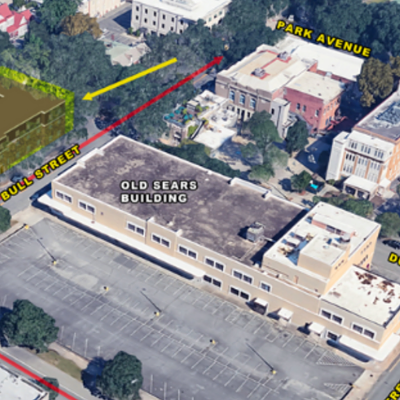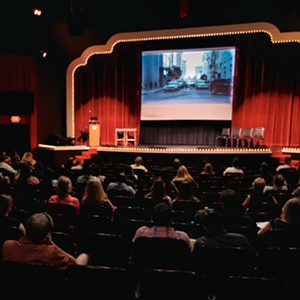Stepping Up
[
{
"name": "Air - MedRect Combo - Inline Content 1",
"component": "14680855",
"insertPoint": "7",
"requiredCountToDisplay": "5",
"parentWrapperClass": "fdn-ads-inline-content-block"
},{
"name": "Air - MedRect Combo - Inline Content 2",
"component": "14680856",
"insertPoint": "15",
"requiredCountToDisplay": "9",
"parentWrapperClass": "fdn-ads-inline-content-block"
},{
"name": "Air - SVP - Leaderboard - Inline Content - 2",
"component": "16852291",
"insertPoint": "10",
"requiredCountToDisplay": "10",
"parentWrapperClass": "fdn-ads-inline-content-block"
},{
"name": "Air - SVP - Leaderboard - Inline Content - 3",
"component": "16852292",
"insertPoint": "20",
"requiredCountToDisplay": "18",
"parentWrapperClass": "fdn-ads-inline-content-block"
},{
"name": "Air - SVP - Leaderboard - Inline Content - 1",
"component": "16852290",
"insertPoint": "25",
"requiredCountToDisplay": "22",
"parentWrapperClass": "fdn-ads-inline-content-block"
}
]
On April 1, Shante Cooper, 27-year-old mother of three, was shot to death at the intersection of 38th and Harden Streets. It would be the first of a series of drive-by shootings that month all of which occurred in mostly African-American neighborhoods.
Mayor Otis Johnson had some questions.
Where are Savannahs black leaders? And are they going to use their positions in the community to help stop these crimes?
Nadra Enzi, Rev. Thurmond Tillman and Verlynda Slaughter are three such leaders working to provide an answer.
Nadra Enzi recently created Concerned Brothers of Savannah to stem the tide of violence within the black community -- as well as to improve relations between African-Americans and the police.
The organization recently entered the public eye when Enzi donated $1,000 to CrimeStoppers towards finding Coopers killers.
He says hes disturbed by the fact that Cooper was murdered in front of witnesses, but no one has come forward with information leading to her killers. He says part of the reason no one has offered any information about Coopers shooters is that there is a lack of communication between the police and the black community especially with the younger male members of that community.
Concerned Brothers of Savannah is working to develop a dialogue between the two groups.
There already is one, but its dysfunctional, Enzi says. The traffic stop is not the time.
Enzi says these dialogues should address the external and internal issues facing the communinity.
We want to improve what we see as a pattern of police hostility towards the black community and do the same within the black community, Enzi says. Were trying to bring the sides together.
Assistant Chief of Police Lovett met with Enzi in April to discuss his ideas. Lovett says that Enzis message - that Savannahs black youth do not want to be always thought of as the enemy - was a positive one.
He supports developing a relationship with Savannahs black youth. Theres nothing to it other than youre gaining a new friend, Lovett says.
Enzi says that young people are also receptive to meeting with the police.
The point is they want to talk its just that no one is listening, Enzi says.
Enzi also wants to establish a community review board to observe police practices and policies.
Lovett says hes against that idea. Hes concerned that people who dont know enough about the law would be making decisions that affect peoples lives.
If there is a crime in the community I want the police to be able to deal with that situation, Lovett says.
Mayor Johnson recently created a crime-prevention task force, which includes Concerned Brothers of Savannah, to give the police a hand.
Enzi supports such group efforts towards crime reduction, saying that the idea that blacks need a single leader to step up and solve their problems is antiquated.
The era of Dr. King and Malcolm X has passed, Enzi says. Its much more of a collaborative effort now.
He said hes just one of many working to improve the quality of life in Savannah.
These are very reasonable people trying to take on very difficult problems, he says.
Verlynda Slaughter is trying to take on a few problems of her own. Problems like the two drive-by shootings that occurred in her neighborhood on April 6 and ended up sending Manny Engram, 19, and Damien Milton, 17, to Memorial Health University Medical Center in critical condition.
Slaughter, 48, has been the president of the Midtown Neighborhood Association since 1997 and has worked to improve her neighborhood for years. The Midtown Center, which opened in 2002, is a result of these efforts. Situated at 35th and Reynolds streets in what used to be an abandoned office building, it now serves as meeting place and resource center for neighborhood residents.
Slaughter says she wants to provide a positive environment for young people to interact with the older members of Midtown.
It provides a safe haven for kids that live in areas that may have drug activity and criminal activity, Slaughter says.
The self-funded center, staffed entirely with volunteers, provides meals, recreation, tutoring, career counseling, financial aid advice, computers with internet access, a garden and greenhouse for potential botanists, and a music room with keyboards for the musically inclined. Most of the kids who go to the center range in age from 5 to 13.
We get them to think about other things then what they see here, Slaughter says. Were working to help them set priorities.
Brad Allen, a legal researcher who has volunteered at the center since it opened, said the younger kids are their main focus.
This is the age you got to start with if you want to prevent crime in the neighborhood, Allen says. When they get older their interests are going to change and we hope they are going to change into something positive.
He says some high-school students also come to the center and help the younger kids with their schoolwork.
The center also serves as the monthly meeting place for the Midtown Neighborhood Association. During these meetings, Midtown residents, along with the police, address ways to improve public safety.
Slaughter says the association submitted a five-year action plan in 2004 aimed at reducing crime in Midtown to the mayor, city manager and the city council.
The plans strategies include getting police officers to spend 30-minute shifts walking areas with high drug activity, establishing a Crime Watch Program, correcting deficient lighting, purchasing and rehabilitating vacant buildings, and assisting landowners in evicting criminals.
The council adopted the plan, and Mayor Johnson says the plan was discussed at a crime-rally in Midtown on May 9 in order to familiarize new members of the association with it.
Certain segments of the plan are already being implemented, Johnson says.
Slaughter isnt satisfied with the speed with which those segments are being implemented, however, saying the mayor has too many meetings discussing crime instead of doing something about it.
Johnson counters that Slaughter is entitled to her opinion.
I believe prior planning prevents poor performance, Johnson says. I dont believe in quick fixes to complex issues.
The April shootings, that police say are gang-related, underscore the need for something to be done.
Its the worst feeling in the world, Slaughter says. We really thought we had put a lot of that behind us.
Slaughter says that the Midtown Neighborhood Association, the community center, and the crime-plan aim to eliminate any future violence. This is what we decided to do here, identifying our responsibility, Slaughter says. We make a point of it.
She says the residents can only do so much, however.
Weve done everything we know to do. When does it come down to the police?
The Rev. Thurmond Tillman of the First African Baptist Church believes that crime in Savannah is going to get worse unless something is done to help ex-convicts successfully re-enter society.
We think crime is bad now we havent seen it bad yet, Tillman says.
Thats why he recently started 100 Black Churches Connected. The program, which currently includes 57 churches ranging from Hinesville to Augusta, aims to help ex-offenders find jobs and stay out of prison.
Currently, Tillman is focusing on the prisoners locked up under the seven deadly sins law created by the Georgia legislature in the 1990s. The law gives a mandatory minimum 10-year sentence without the possibility of parole to anyone convicted of rape, murder, armed robbery, kidnapping, aggravated child molestation, aggravated sodomy and aggravated battery.
Tillman says that when legislators enacted these get tough on crime laws they just wanted to get the criminals off the streets.
Nobody thought about when they come back, he says.
Tillman says part of the problem with the mandatory sentences is that since the offenders served their full sentences they dont receive any help or supervision when they return to society.
They leave with $25 and a bus ticket, Tillman says.
Once released, the ex-convicts find it difficult to find a job and make a living since potential employers ask them if theyve ever been convicted of a crime.
If they answer yes, than its hard to find work, he says. If they say no, then they find out the truth next week.
He says family and friends could only help them so much.
If they lose hope, they go back to what they know best, Tillman says.
Tillman, along with the participating churches in 100 Black Churches Connected, the Georgia Department of Corrections, the Georgia Department of labor, and Georgia State Parole Board are working to end this pattern.
He is asking area businesses to give these ex-offenders jobs and therefore a chance to become a part of the community.
Theyve been very receptive, Tillman says. Their main concern is whether or not they can do the job.
He is going to the prisons and talking with the prisoners before they are released in order to develop relationships with them and their families. He asks them where they plan on going and if it isnt this region he finds another church that can help.
One prisoner he talked with, Jerome McIntosh, was released on January 2. McIntosh was glad Tillman came. No one was going to see prisoners, like McIntosh, who had served their full sentence.
Tillman is visiting Albert Heyward next. Heyward, convicted of armed robbery, will be released on May 30. Tillman says his program is just getting started, and in the future he would meet with prisoners at least six months before they are released.
Tillman says there will be 12 deadly sins inmates released this year, with that number likely to increase to 24 in 2006 and almost 40 in 2007.
From there it keeps getting higher and higher, Tillman says.
Eventually Tillman would like to help all prisoners, not just those convicted under the deadly sins law.
Seventy-four percent of all crimes in Savannah last year were committed by people that were previously incarcerated. Doing nothing causes us to have the worst possible situations. w
To comment in a letter to the editor, e-mail us at
Mayor Otis Johnson had some questions.
Where are Savannahs black leaders? And are they going to use their positions in the community to help stop these crimes?
Nadra Enzi, Rev. Thurmond Tillman and Verlynda Slaughter are three such leaders working to provide an answer.
Nadra Enzi recently created Concerned Brothers of Savannah to stem the tide of violence within the black community -- as well as to improve relations between African-Americans and the police.
The organization recently entered the public eye when Enzi donated $1,000 to CrimeStoppers towards finding Coopers killers.
He says hes disturbed by the fact that Cooper was murdered in front of witnesses, but no one has come forward with information leading to her killers. He says part of the reason no one has offered any information about Coopers shooters is that there is a lack of communication between the police and the black community especially with the younger male members of that community.
Concerned Brothers of Savannah is working to develop a dialogue between the two groups.
There already is one, but its dysfunctional, Enzi says. The traffic stop is not the time.
Enzi says these dialogues should address the external and internal issues facing the communinity.
We want to improve what we see as a pattern of police hostility towards the black community and do the same within the black community, Enzi says. Were trying to bring the sides together.
Assistant Chief of Police Lovett met with Enzi in April to discuss his ideas. Lovett says that Enzis message - that Savannahs black youth do not want to be always thought of as the enemy - was a positive one.
He supports developing a relationship with Savannahs black youth. Theres nothing to it other than youre gaining a new friend, Lovett says.
Enzi says that young people are also receptive to meeting with the police.
The point is they want to talk its just that no one is listening, Enzi says.
Enzi also wants to establish a community review board to observe police practices and policies.
Lovett says hes against that idea. Hes concerned that people who dont know enough about the law would be making decisions that affect peoples lives.
If there is a crime in the community I want the police to be able to deal with that situation, Lovett says.
Mayor Johnson recently created a crime-prevention task force, which includes Concerned Brothers of Savannah, to give the police a hand.
Enzi supports such group efforts towards crime reduction, saying that the idea that blacks need a single leader to step up and solve their problems is antiquated.
The era of Dr. King and Malcolm X has passed, Enzi says. Its much more of a collaborative effort now.
He said hes just one of many working to improve the quality of life in Savannah.
These are very reasonable people trying to take on very difficult problems, he says.
Verlynda Slaughter is trying to take on a few problems of her own. Problems like the two drive-by shootings that occurred in her neighborhood on April 6 and ended up sending Manny Engram, 19, and Damien Milton, 17, to Memorial Health University Medical Center in critical condition.
Slaughter, 48, has been the president of the Midtown Neighborhood Association since 1997 and has worked to improve her neighborhood for years. The Midtown Center, which opened in 2002, is a result of these efforts. Situated at 35th and Reynolds streets in what used to be an abandoned office building, it now serves as meeting place and resource center for neighborhood residents.
Slaughter says she wants to provide a positive environment for young people to interact with the older members of Midtown.
It provides a safe haven for kids that live in areas that may have drug activity and criminal activity, Slaughter says.
The self-funded center, staffed entirely with volunteers, provides meals, recreation, tutoring, career counseling, financial aid advice, computers with internet access, a garden and greenhouse for potential botanists, and a music room with keyboards for the musically inclined. Most of the kids who go to the center range in age from 5 to 13.
We get them to think about other things then what they see here, Slaughter says. Were working to help them set priorities.
Brad Allen, a legal researcher who has volunteered at the center since it opened, said the younger kids are their main focus.
This is the age you got to start with if you want to prevent crime in the neighborhood, Allen says. When they get older their interests are going to change and we hope they are going to change into something positive.
He says some high-school students also come to the center and help the younger kids with their schoolwork.
The center also serves as the monthly meeting place for the Midtown Neighborhood Association. During these meetings, Midtown residents, along with the police, address ways to improve public safety.
Slaughter says the association submitted a five-year action plan in 2004 aimed at reducing crime in Midtown to the mayor, city manager and the city council.
The plans strategies include getting police officers to spend 30-minute shifts walking areas with high drug activity, establishing a Crime Watch Program, correcting deficient lighting, purchasing and rehabilitating vacant buildings, and assisting landowners in evicting criminals.
The council adopted the plan, and Mayor Johnson says the plan was discussed at a crime-rally in Midtown on May 9 in order to familiarize new members of the association with it.
Certain segments of the plan are already being implemented, Johnson says.
Slaughter isnt satisfied with the speed with which those segments are being implemented, however, saying the mayor has too many meetings discussing crime instead of doing something about it.
Johnson counters that Slaughter is entitled to her opinion.
I believe prior planning prevents poor performance, Johnson says. I dont believe in quick fixes to complex issues.
The April shootings, that police say are gang-related, underscore the need for something to be done.
Its the worst feeling in the world, Slaughter says. We really thought we had put a lot of that behind us.
Slaughter says that the Midtown Neighborhood Association, the community center, and the crime-plan aim to eliminate any future violence. This is what we decided to do here, identifying our responsibility, Slaughter says. We make a point of it.
She says the residents can only do so much, however.
Weve done everything we know to do. When does it come down to the police?
The Rev. Thurmond Tillman of the First African Baptist Church believes that crime in Savannah is going to get worse unless something is done to help ex-convicts successfully re-enter society.
We think crime is bad now we havent seen it bad yet, Tillman says.
Thats why he recently started 100 Black Churches Connected. The program, which currently includes 57 churches ranging from Hinesville to Augusta, aims to help ex-offenders find jobs and stay out of prison.
Currently, Tillman is focusing on the prisoners locked up under the seven deadly sins law created by the Georgia legislature in the 1990s. The law gives a mandatory minimum 10-year sentence without the possibility of parole to anyone convicted of rape, murder, armed robbery, kidnapping, aggravated child molestation, aggravated sodomy and aggravated battery.
Tillman says that when legislators enacted these get tough on crime laws they just wanted to get the criminals off the streets.
Nobody thought about when they come back, he says.
Tillman says part of the problem with the mandatory sentences is that since the offenders served their full sentences they dont receive any help or supervision when they return to society.
They leave with $25 and a bus ticket, Tillman says.
Once released, the ex-convicts find it difficult to find a job and make a living since potential employers ask them if theyve ever been convicted of a crime.
If they answer yes, than its hard to find work, he says. If they say no, then they find out the truth next week.
He says family and friends could only help them so much.
If they lose hope, they go back to what they know best, Tillman says.
Tillman, along with the participating churches in 100 Black Churches Connected, the Georgia Department of Corrections, the Georgia Department of labor, and Georgia State Parole Board are working to end this pattern.
He is asking area businesses to give these ex-offenders jobs and therefore a chance to become a part of the community.
Theyve been very receptive, Tillman says. Their main concern is whether or not they can do the job.
He is going to the prisons and talking with the prisoners before they are released in order to develop relationships with them and their families. He asks them where they plan on going and if it isnt this region he finds another church that can help.
One prisoner he talked with, Jerome McIntosh, was released on January 2. McIntosh was glad Tillman came. No one was going to see prisoners, like McIntosh, who had served their full sentence.
Tillman is visiting Albert Heyward next. Heyward, convicted of armed robbery, will be released on May 30. Tillman says his program is just getting started, and in the future he would meet with prisoners at least six months before they are released.
Tillman says there will be 12 deadly sins inmates released this year, with that number likely to increase to 24 in 2006 and almost 40 in 2007.
From there it keeps getting higher and higher, Tillman says.
Eventually Tillman would like to help all prisoners, not just those convicted under the deadly sins law.
Seventy-four percent of all crimes in Savannah last year were committed by people that were previously incarcerated. Doing nothing causes us to have the worst possible situations. w
To comment in a letter to the editor, e-mail us at

